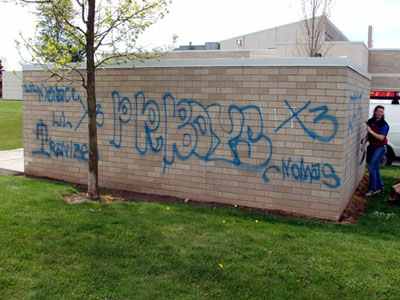…but God is never interrupted. All the plots of hell and commotions on earth, have not so much as shaked God’s hand, to spoil one letter or line that he hath been drawing. The mysteriousness of his providence may hang a curtain before his work, that we cannot see what he is doing; but then ‘when darkness is about him, righteousness is the seat of his throne for ever.’—William Gurnall, The Christian In Complete Armour.
Something a teacher said has stuck with me for a long time—Everything that is evil or bad or wrong is the corruption of something that was once good.
This adage speaks eloquently to the nature of God, and of man.
God is the Creator of all things, seen and unseen. In the Genesis account of creation, God emphatically pronounces everything he made to be “good” (Genesis 1:4, 10, 12, 18, 21, 25, 31). Eden was a place where the first man and woman were happily employed as God’s companions.
But then this adage speaks to the power of man to corrupt anything and everything that God created. When Adam and Eve assumed they could usurp the position of ultimate control and authority for themselves, everything broke—spiritually, psychologically, physically—especially man himself.
Voices around us declare the remoteness or absence of God in the face of evil. Or they complain of the cruelty of God. All these voices are doing, finally, is denying their own corruption and their own responsibility for the brokenness they have caused. Try as we may, we are inevitably tripped up by unpredictable, uncontrollable vicissitudes.
 Some people happily spray their graffiti over what others have worked hard to “beautify.” When some cry out against the defacing vandals, a moral judgment is being made. There is an implicit recognition that something has been spoiled or marred. Even the vandals have their own standards of what is beautiful. The conversation is carried on with no reference to the corruption we are all responsible for that is perpetuated continually around us and in us.
Some people happily spray their graffiti over what others have worked hard to “beautify.” When some cry out against the defacing vandals, a moral judgment is being made. There is an implicit recognition that something has been spoiled or marred. Even the vandals have their own standards of what is beautiful. The conversation is carried on with no reference to the corruption we are all responsible for that is perpetuated continually around us and in us.
God could have burned the canvas, so to speak, on which he was creating—but he did not. A careful consideration of the Bible would reveal that he allowed the ruination of his good creation in order to produce something far more beautiful. God became part of his own picture to bring it to perfect completion. Amazingly, he took ownership of the corruption; he became marred, and ugly, and broken; and he gave back his own perfect beauty in the place of the corruption he paid for.
A careful consideration of the Bible would reveal that he allowed the ruination of his good creation in order to produce something far more beautiful. God became part of his own picture to bring it to perfect completion. Amazingly, he took ownership of the corruption; he became marred, and ugly, and broken; and he gave back his own perfect beauty in the place of the corruption he paid for.
Man could never undo the corruption. Only the Creator can do that.
